Surveying Germany on coronavirus and data donation
The COVID-19 pandemic has a firm grip on world events. The accelerated vaccine rollout promises to help end the pandemic. Nevertheless, we urgently need additional solutions to help us permanently return to everyday life. Digital solutions can be a deciding factor in accelerating research.
Continue to surveyWe surveyed 5,002 people in Germany to get a better understanding of how the population views topics like data protection and donating personal data (e.g. pulse rate and step count) to support research.
Data is strictly regulated in Germany, making Germany and the European Union pioneers when it comes to many international debates on data protection. New topics are currently being discussed as several countries have already shown that implementing digital solutions is an effective way to combat the COVID-19 pandemic. We conducted this survey to find out what percentage of the German population would be willing to donate health data and under which conditions they would agree to data donation. The results provide exciting new insights on public opinion throughout the country.
"By sharing health data, citizens can significantly accelerate medical research and notably improve healthcare," said Professor Erwin Böttinger, head of the Digital Health Center at the Hasso Plattner Institute in Potsdam in response to the survey results.
Question 1
What would convince you to share your medical data digitally with doctors and research institutions?
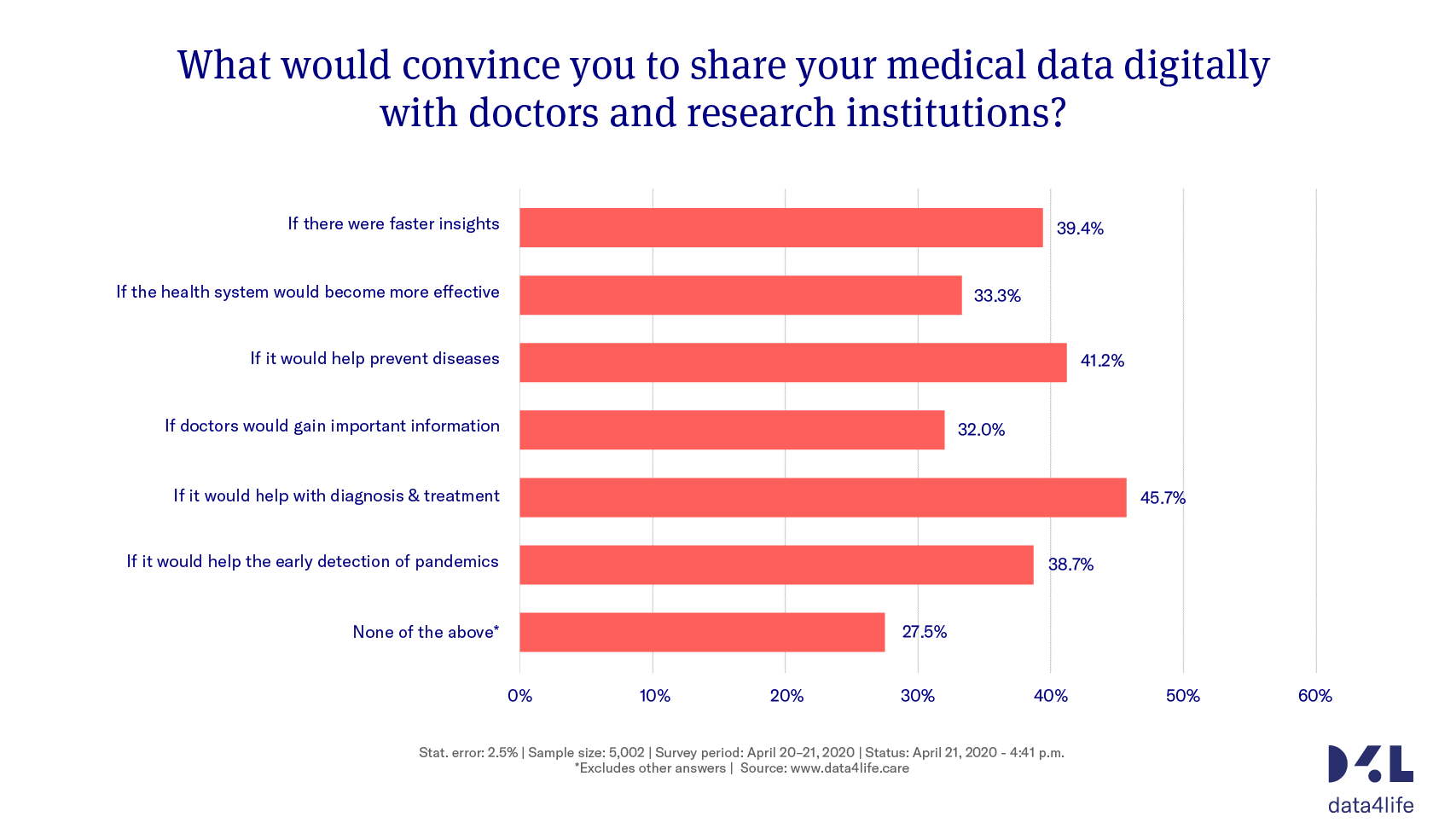
Reasons for sharing personal health data
According to our survey results, the overwhelming majority of German citizens is already willing to share medical data digitally with doctors and researchers if certain conditions are met. Almost three quarters of those surveyed (73%) reported they would agree to share their data. For those who answered in the affirmative, the three most important reasons for sharing data are improving therapy and diagnosis (63%), helping to prevent diseases (57%), and achieving faster insights (54%). 53% support the early detection of pandemics, reflecting the population’s desire to forestall a situation similar to the COVID-19 health crisis.
Comparing West and East German opinion on the matter shows people in West Germany are slightly more open to sharing their medical data digitally. 74% of West German respondents answered affirmatively in contrast to only 68% East Germans. Breaking down the results according to purchasing power also seems to indicate a trend: 76% of respondents with very high purchasing power would agree to share data while only 67% of respondents with very low purchasing power are open to the possibility.
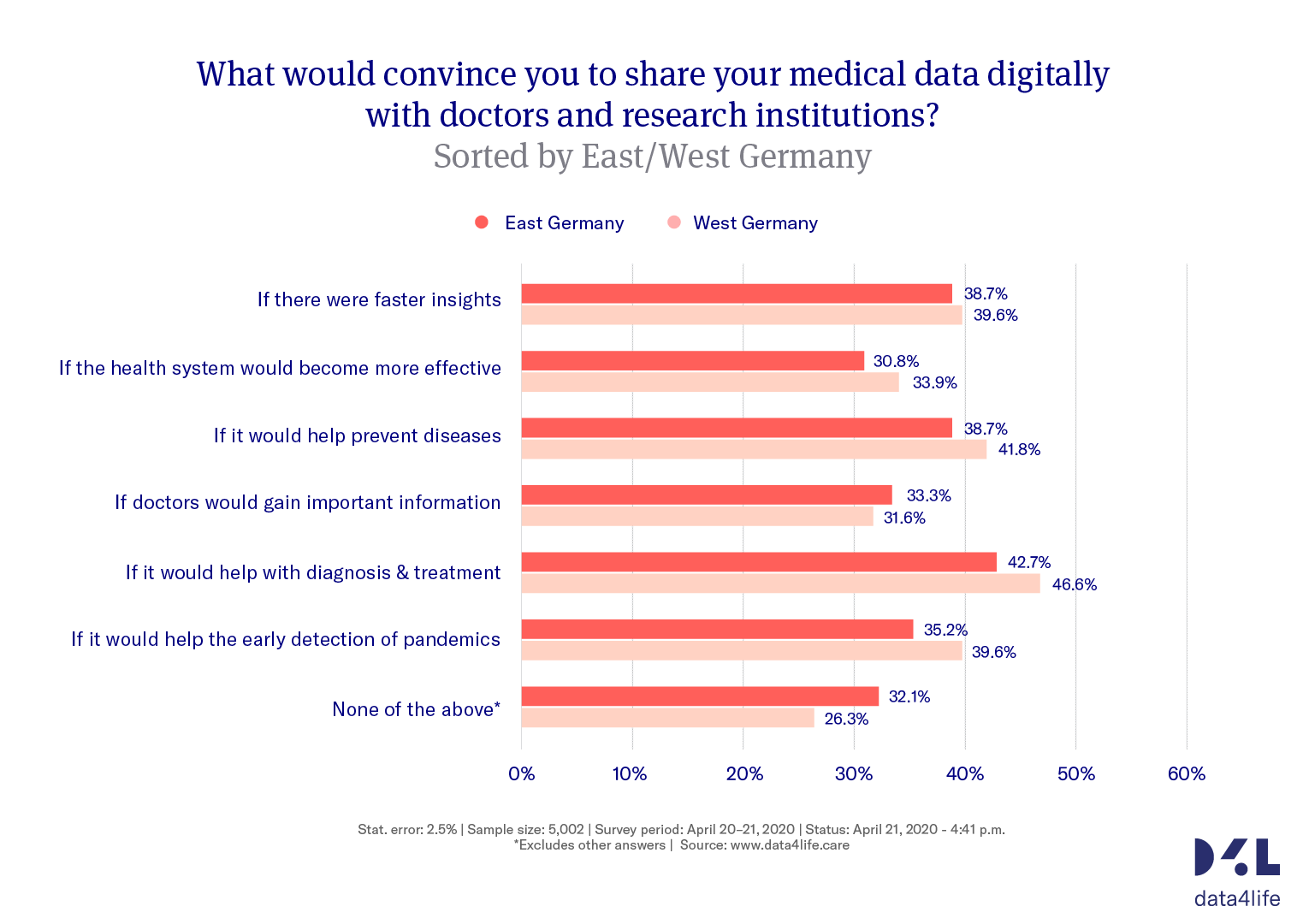
Question 2
Which health-related data would you share while protecting privacy in order to speed up research of coronavirus?
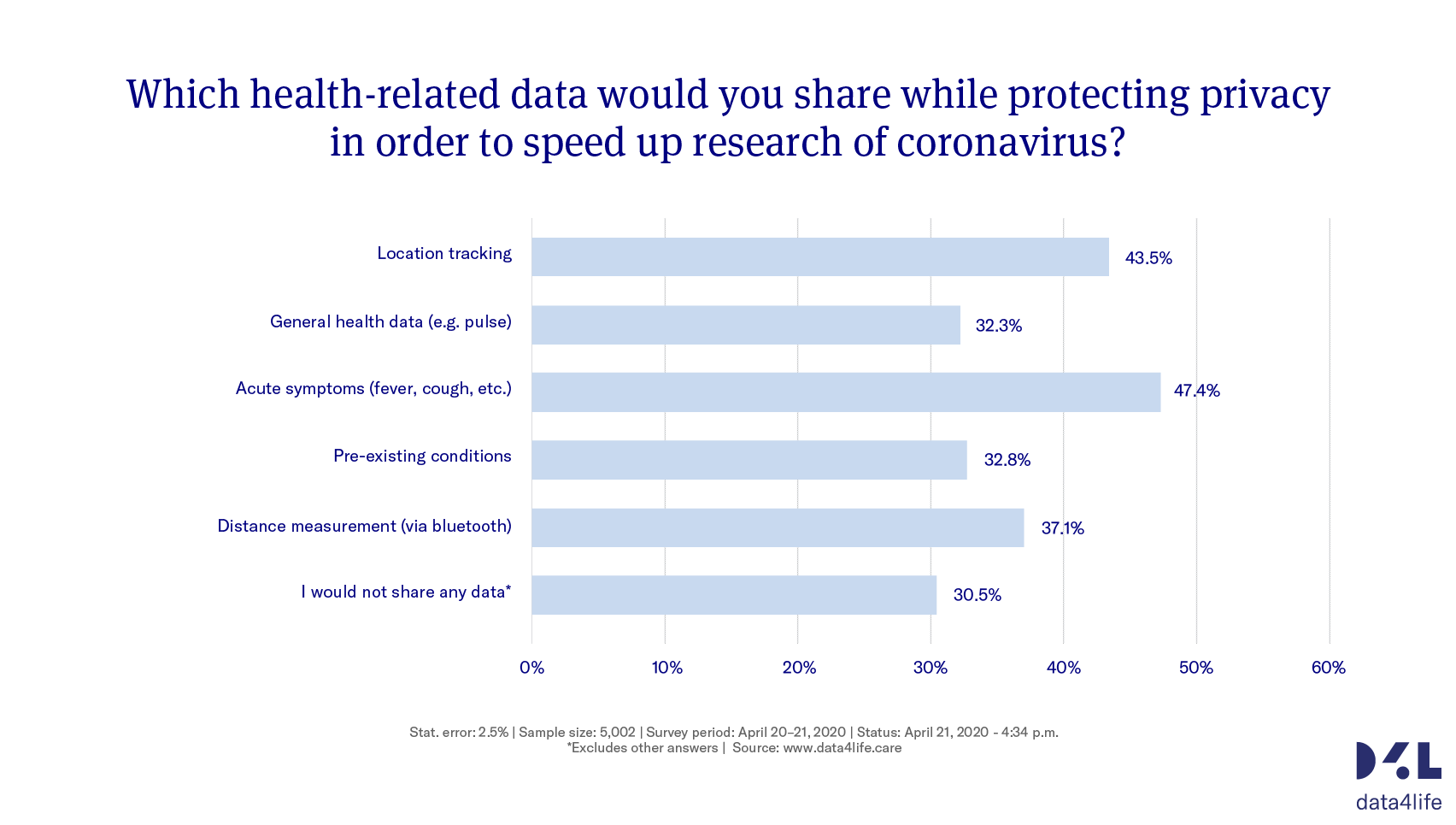
Types of personal health-related data
Similar to the findings of the first survey question, approximately 70% of Germans are willing to donate their data to support the research of coronavirus. The majority of all respondents who answered in the affirmative said they would be open to sharing acute symptoms like coughing and fever (68%), location tracking information (63%), and distances measured using Bluetooth (53%). Only 47% of the respondents willing to donate data would share information about pre-existing conditions and 47% of them would share general health data like pulse rates.
Once again, the survey results show that people with children in the household are less open to sharing their personal health data. 72% of respondents in households without children are willing to donate data to coronavirus research in contrast to only 63% of respondents in households with children. An analysis of the results based on purchasing power shows a direct correlation between purchasing power and willingness to donate. 75% of respondents with very high purchasing power would share their data while 66% of respondents with very low purchasing power would be open to donating.
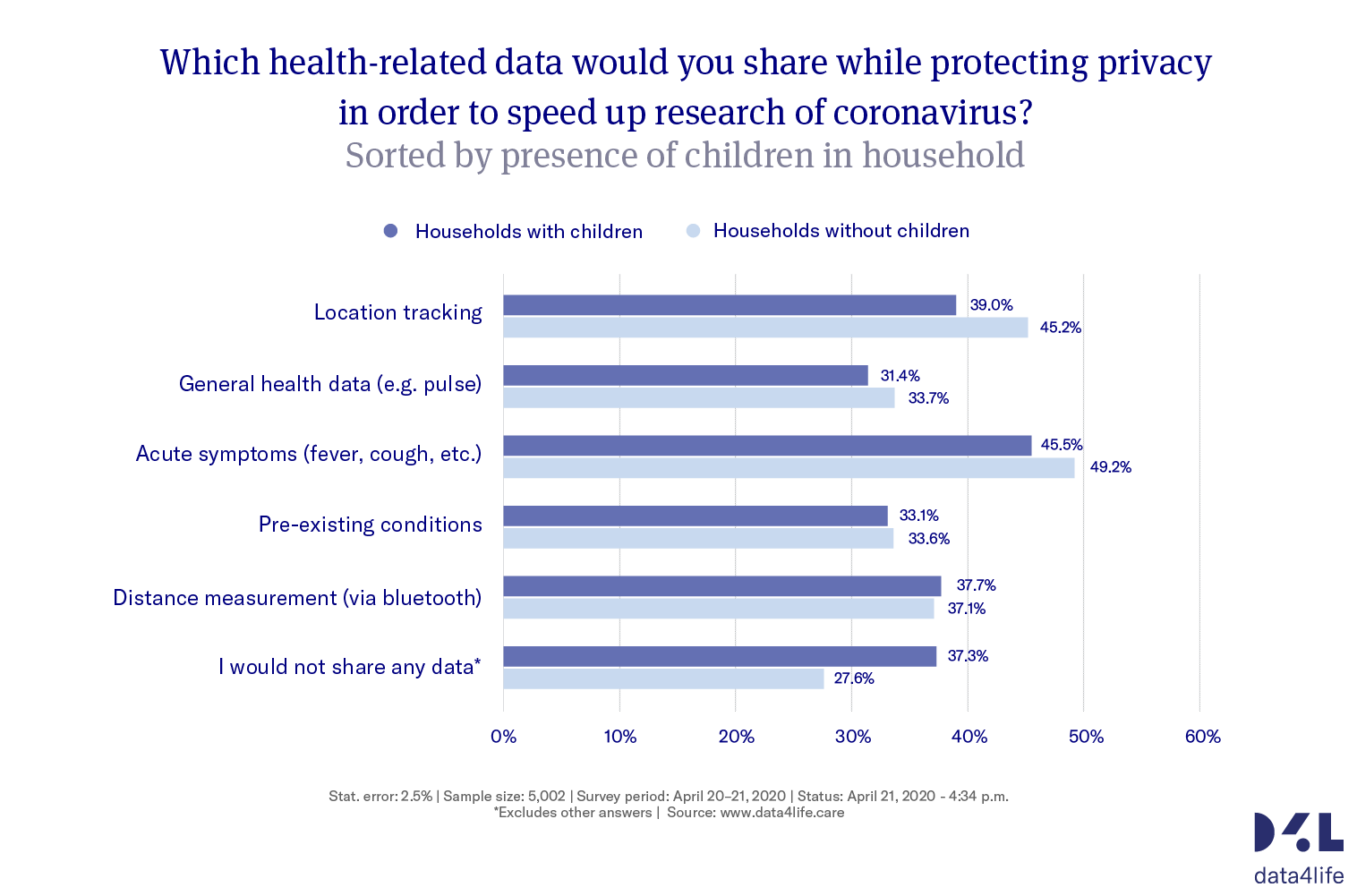
Question 3
For what purpose would you provide health data (pulse, fever, pre-existing illnesses) and movement data (location, distance measurement) to COVID-19 research?
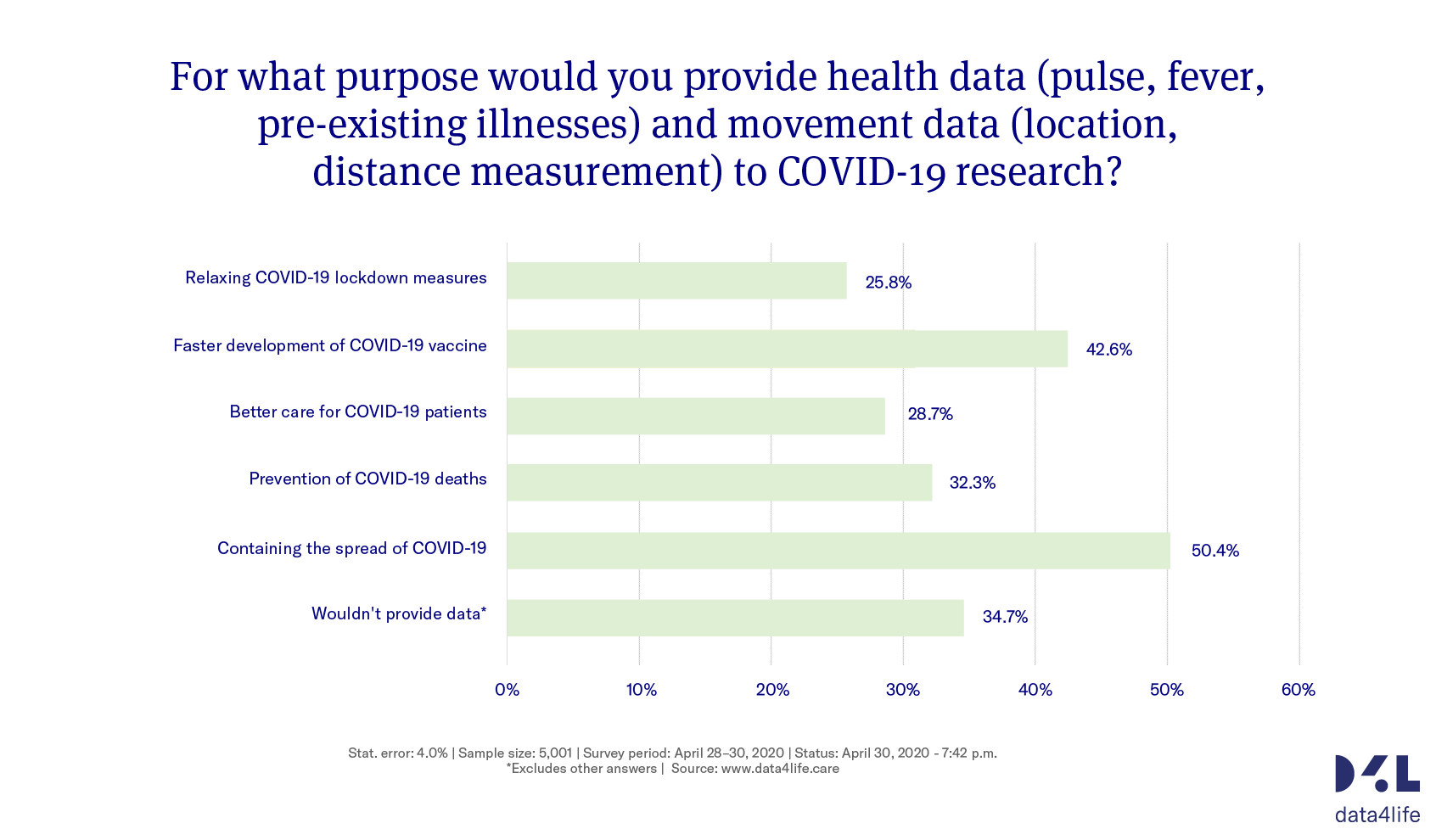
Motivation for donating health data during coronavirus pandemic
When asked about objectives for donating health and movement data to COVID-19 research, 65% of survey participants indicated they would be willing to donate data in general. The most important purposes for data donation reported by those respondents are containing the spread of COVID-19 (77%) and speeding up the development of a COVID-19 vaccine (65%). Only 40% of respondents willing to donate data would do so to loosen the COVID-19 lockdown measures, making it the least important goal among survey participants.
67% of respondents in West Germany would donate personal data to help achieve one of the COVID-19 goals listed in the survey while only 58% of East German respondents would be willing to make data available for such research purposes. As in the findings from the question 2, secondary schooling does not seem to impact willingness to donate health data. However, the results indicate that respondents who completed the Abitur exams are more interested in donating data to loosen COVID-19 lockdown restrictions than those who received a secondary school certificate (Mittlere Reife), only completed lower secondary school (Hauptschule), or did not graduate.
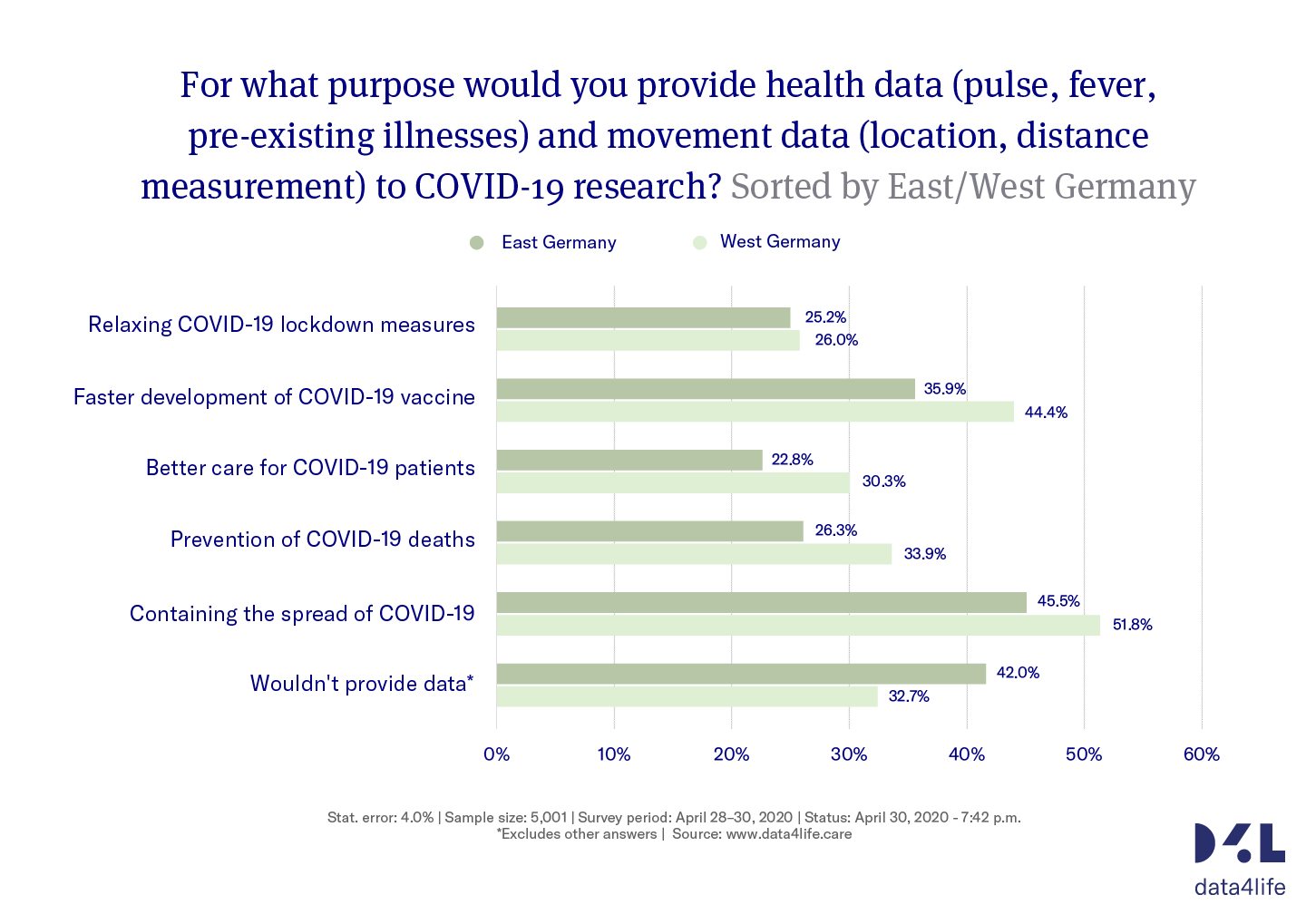
Visual summary of survey results
Interested in a short summary of our data donation survey results and analysis? Here’s an infographic you can share with family and friends.
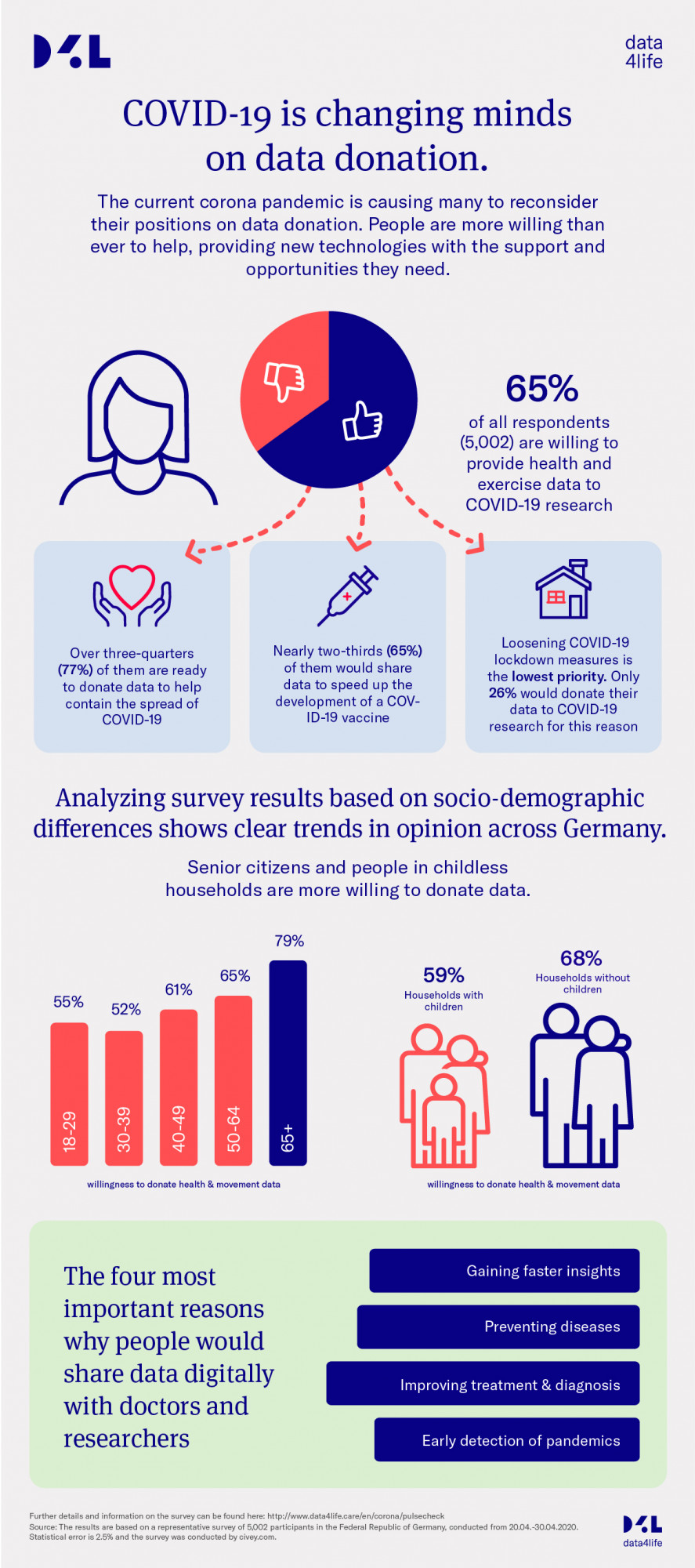
Information on survey
Source: The results are based on a representative survey of 5,002 participants in the Federal Republic of Germany, conducted from April 20–30, 2020. Statistical error is 2.5%, and the survey was conducted by civey.com.






